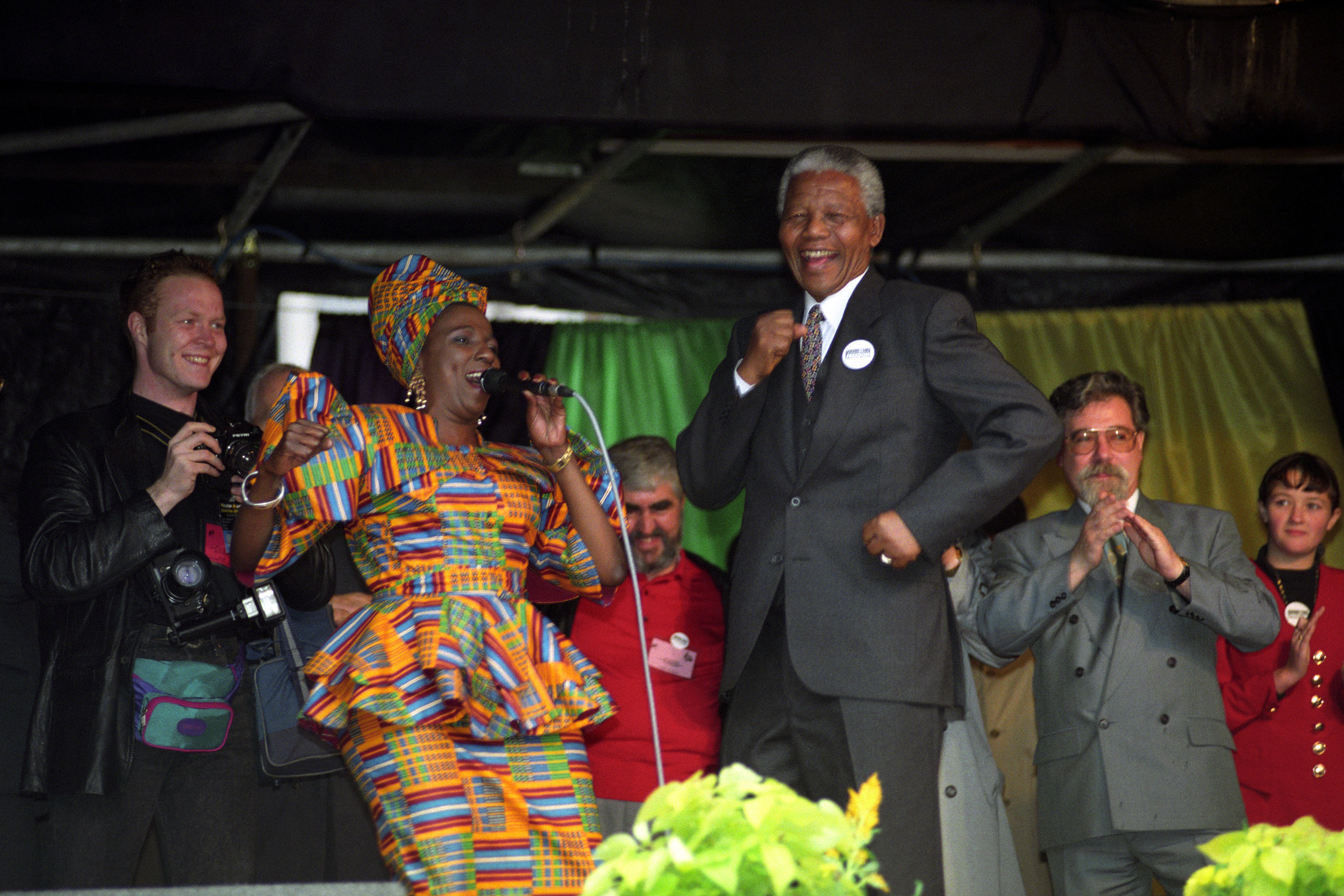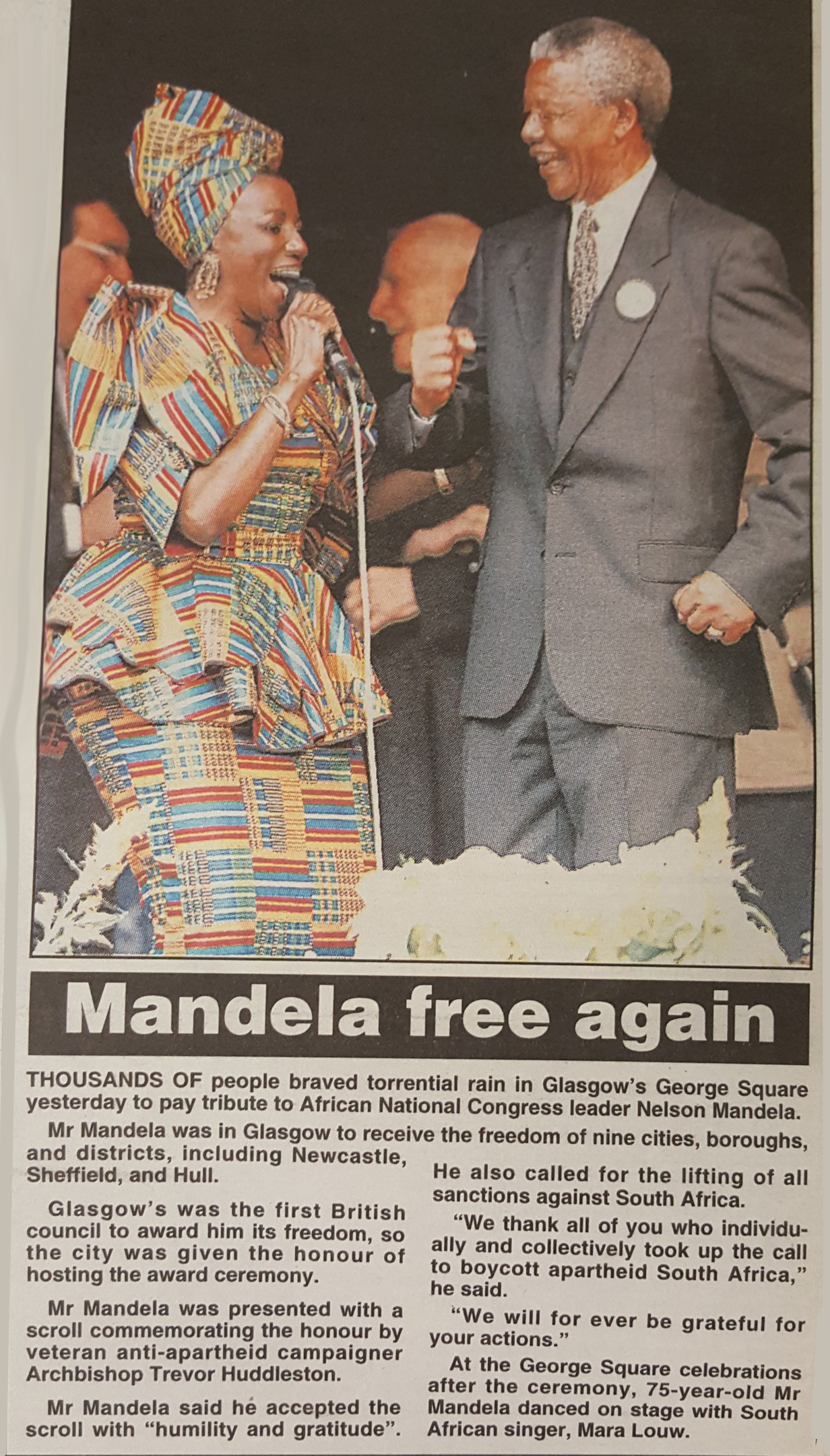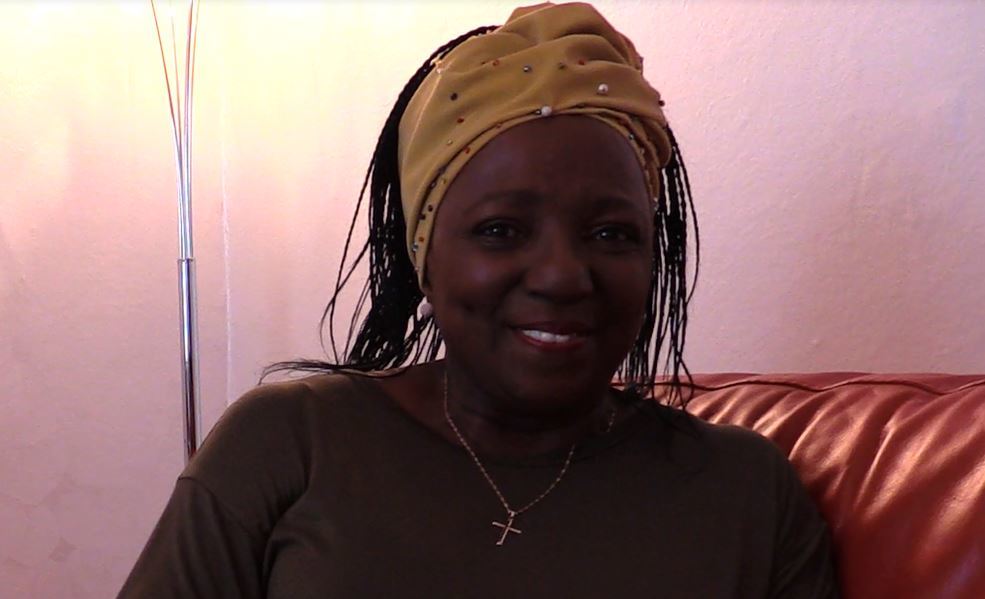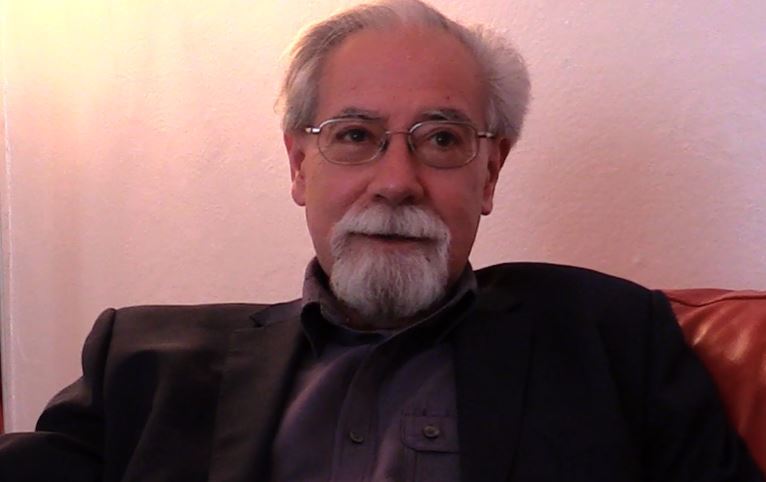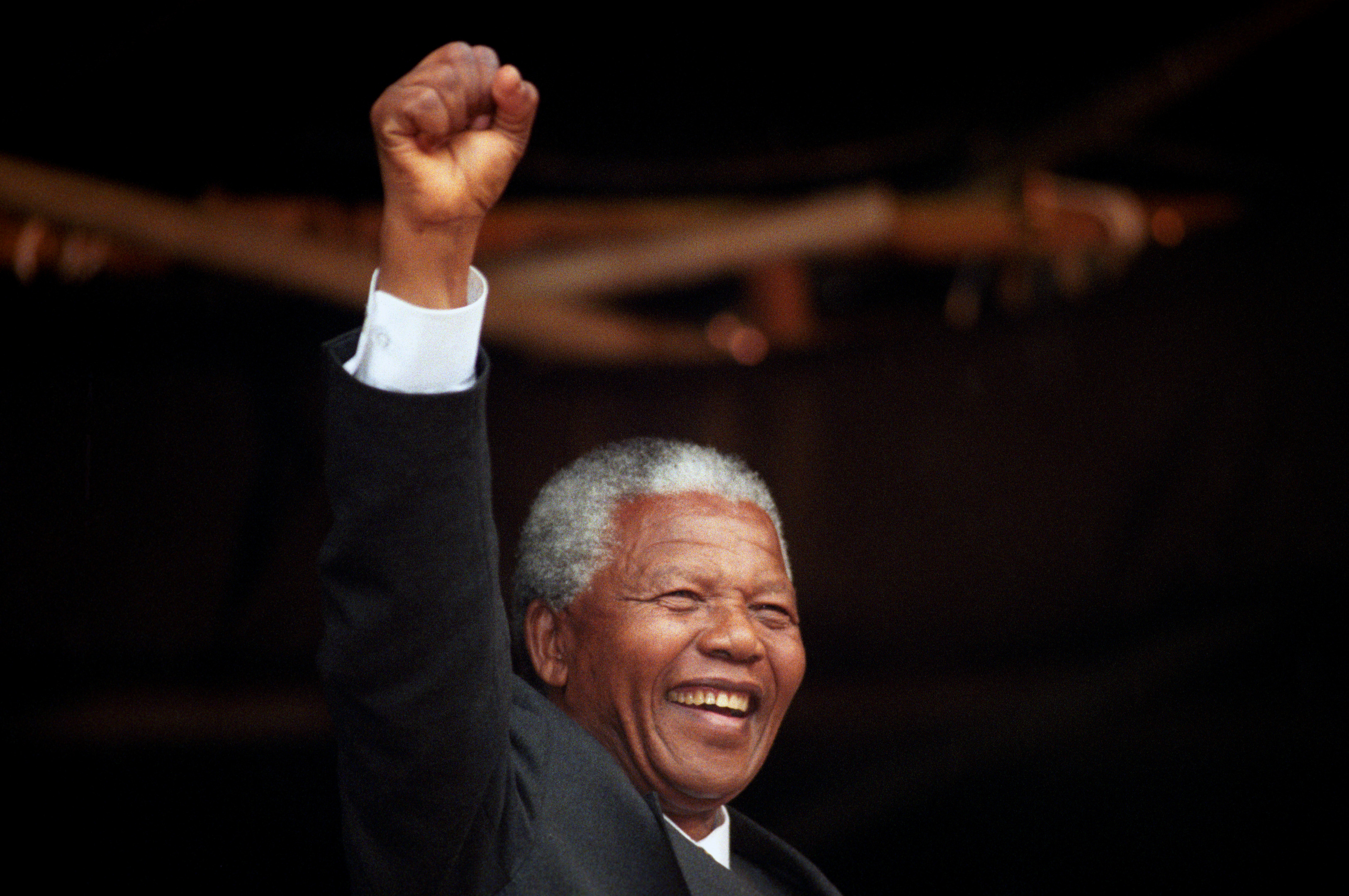IT may have been a rainy autumn day in Glasgow, but the mood was bright when Nelson Mandela came to town.
On October 9, 1993, the anti-apartheid campaigner and international icon paid a visit to accept the freedom of the city and several others across the UK.
Thousands lined the streets as he met delegates and spoke in front of vast crowds, a few months before he became South Africa’s first black president.
Perhaps one of the most memorable moments on an extraordinary day was when Mandela danced on stage in George Square with singer Marah Louw.
With the 25th anniversary approaching, and in Mandela’s centenary year, Marah is back in Glasgow to perform at a fundraising dinner for the Nelson Mandela Scottish Memorial Foundation (NMSMF).
The charity aims to erect a statue in Glasgow, and to further extend the great man’s legacy with educational resources sharing the story of his fight for freedom to the next generation.
Speaking to The Sunday Post, Marah said she wass excited to be back in the city that provided her with one of the most unforgettable experiences of her life.
“It’s something that I’ll live with for the rest of my life,” she says. “It’s a memory that will never ever be erased.”
Having already had to pinch herself after performing in front of a packed Wembley Stadium at a concert in support of Mandela, she got the invitation from Scots campaigner Brian Filling and the anti-apartheid movement to come to Glasgow.
“I had performed before coming to Glasgow at Wembley when Madiba came out,” she recalls.”I came all the way from South Africa to perform in front of 80,000 people.
“I thought that’s it, I’m going to see Mandela and he’s going to be so big no-one will be able to come near him, so the memory of that day in George Square is unforgettable.”
A star singer in her homeland, Marah was scheduled to perform before the icon came on stage, and then again when he was leaving. But Mandela had other ideas.
“He was thoroughly enjoying himself,” she laughs. “It was actually unexpected, first I had to sing and then he had to speak. Then I had to sing for him to leave the stage… but he didn’t leave the stage, he decided to join me! That for me was the greatest honour from a great man.”
“While we were physically denied our freedom in the country of our birth, a city 6,000 miles away, and as renowned as Glasgow, refused to accept the legitimacy of the apartheid system, and declared us to be free.” – Nelson Mandela
Mandela means the world to Marah and so many of her fellow South Africans who suffered under apartheid rule but were eventually given their rightful freedom.
“I owe my freedom to him and all the other prisoners and people who fought for our freedom,” she says. “We owe our freedom to him, especially him for instilling the culture of forgiveness which was not easy for a whole lot of us to suddenly just move on and forgive.”
Marah is delighted to support the NMSMF’s aims and will join the likes of Glasgow’s Lord Provost Eva Bolander, South Africa’s High Commissioner Nomatemba Tambo, actor Dave Anderson and journalist David Pratt at the dinner tonight (Friday 24).
“We try to live his legacy, I want to be his legacy,” she adds. “We have committed ourselves to be Nelson Mandela’s legacy. Whatever we do, we do it in respect of his legacy.
“I’m hoping that we can raise enough money to have the statue built. I’m sure the Scots people love Madiba so much that they’ll empty their pockets and the dream can be achieved!”
A lasting legacy
As Chairman of the NMSMF and Honorary Counsel to South Africa for Scotland, Brian Filling is hoping the dinner can push the charity towards their goal.
“It’ll be a great night for a variety of reasons,” he says. “It will be a celebration of Nelson Mandela’s centenary. It’s a very important year with events around the world, celebrating his life, struggle, successes and his values. That’s what we want to continue.
“A statue to some people might not seem that important but it’s all the things around it that you do and for future generations it’s the education aspect of it.
“I’m sure it will be a tourist attraction – people will come to get their photo taken with the statue.”
Planning permission has already been granted by Glasgow City Council for the statue, and an open competition will be held to select the design and sculptor.
It will fittingly be situated in Nelson Mandela Place, just off the busy thoroughfare of Buchanan Street.
Helping to raise funds are a number of auction items, including a donation from one of the charity’s patrons, Sir Alex Ferguson.
Going under TV auctioneer Anita Manning’s hammer will be a book of Harold Reilly sketches presented to the football icon after Manchester United’s 1999 Champions League final win, as well as a number of other items.
The dinner will also be a chance to reminisce about that wonderful day in Glasgow.
“I was very proud – and somewhat relieved,” says Brian, who played an instrumental part in the visit’s organising.
“When he was released, Local Authority Action Against Apartheid had agreed to invite him to get the freedoms of the cities. He’d already been to London but never really been out of there.
“The idea was to have him visit around the country. I was appointed to liaise with his office, the ANC and the nine cities who had given him the freedom.
“The ANC and his office wanted him to come to one place, it was in the middle of an election so they didn’t want him away from South Africa for too long and it was also tiring.
“It was a great honour to be appointed the liaison, however it took two years to negotiate that he’d just come to one place! Understandably all the other places wanted him to be there. That’s why I was somewhat relieved.”
Ill-health and other commitments forced the visit to be cancelled twice, but it eventually went ahead in October 1993.
Glasgow was the first city in the world to award Mandela, who would have turned 100 earlier this year, the freedom of the city, and seemed the perfect place for him to come.
Brian continues: “To get him was a great sense of relief and he made such an impact when he did come. I’d met him before but on this occasion I spent a weekend with him and got to know him a bit more.
“Out of that came an invite to his inauguration as President so it was a great day for a variety of reasons – other than the rain… It was torrential rain!”
Each of the cities that had honoured Mandela with their freedom sent delegates to meet him and bestow the honour in person.
Aberdeen’s delegates had been reluctant to attend given how brief their meeting with Mandela would be – but they wouldn’t regret making the journey.
“He came into the first room, three cities in each room, to meet the delegates,” Brian explains. “I had the unfortunate task of telling them that they’d each only get five minutes with him, each city.
“He came in and said to the first woman: ‘thank you so much for coming in this dreadful weather from the Granite City!’
“He talked to everybody. We had worried about him spending an hour shaking hands, it wasn’t the best use of his time. But he transformed the thing from being a chore to something that clearly he really enjoyed.
“The leader of Aberdeen council apologised for their resistance… but said that it was the most wonderful five minutes of their life.
“When you see it on video, it was only three-and-a-half. He was that powerful, in a short time, the presence and impact he had on individuals was phenomenal.”
For more information on the NMSMF, visit their website https://mandelascottishmemorial.org/

Enjoy the convenience of having The Sunday Post delivered as a digital ePaper straight to your smartphone, tablet or computer.
Subscribe for only £5.49 a month and enjoy all the benefits of the printed paper as a digital replica.
Subscribe